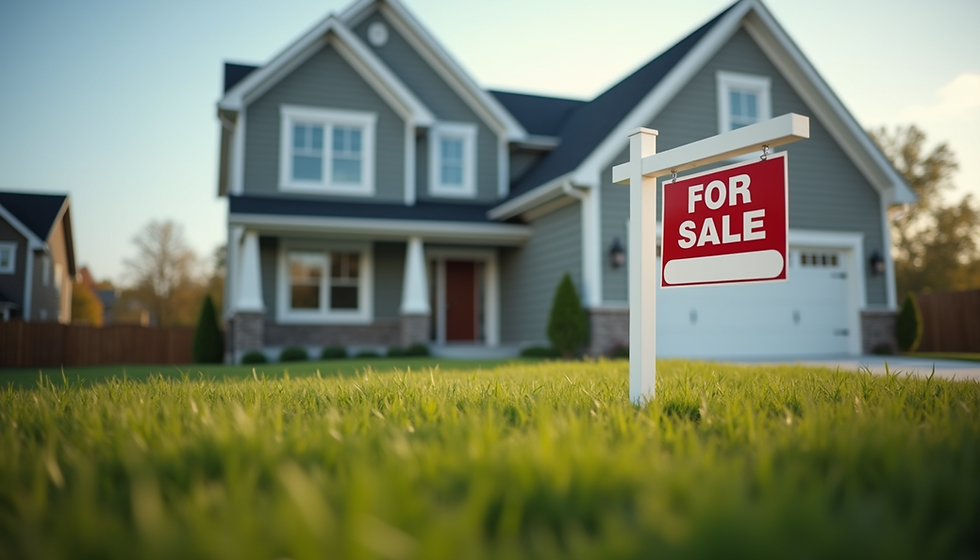How Do Appraisers Determine Home Value?
- rayloveshomes

- Jul 30, 2021
- 3 min read
Updated: Jan 7, 2023
Appraisers represent lenders and really confirm a property’s value rather than determine what the home’s value is. Appraisers reconcile a value for a buyer and seller to agree upon in a purchase contract. So, how do appraisers determine the value of a home? Let’s find out.
What do appraisers look at?
Sales history
Neighborhood
Site
Improvements
The “Three Approaches" appraisers use when determining the Market Value of a property. Find out more these approaches below.
Reconciliation (where the opinion of final value is stated)
Note that the sales history and the neighborhood hold the most weight out of the sections.
The Three Approaches
There are three traditional groups of methodologies for determining value. These are usually referred to as the "three approaches to value" which are generally independent of each other.
Sales comparison approach - This approach to value bases its opinion of value on what similar properties (otherwise known as “comparables”, or “comps”) in the vicinity have sold for recently. These properties are adjusted for time, acreage, size, amenities, etc. as compared to the property that is being appraised.
Cost approach - a real estate valuation method that surmises that the price a buyer should pay for a piece of property should equal the cost to build an equivalent building.
Income approach - when a property generates income for it’s owner, that income, or potential for income, helps to calculate the market value of the property. Apartment buildings and duplexes are examples of income-producing properties.
An appraiser can generally choose from three approaches to determine value. One or two of these approaches will usually be most applicable, with the other approach or approaches usually being less useful. The appraiser has to think about the "scope of work", the type of value, the property itself, and the quality and quantity of data available for each approach. No overarching statement can be made that one approach or another is always better than one of the other approaches.
How Do Appraisers Choose Comparable Homes?
Descriptions and photographs of homes can be deceiving, so a good appraiser will interview the listing or selling agent to learn more about the comparable property they are planning to use. Appraisers use comparable homes to ensure that the property is accurately valued for the neighborhood. A new mortgage lender may require that the comparable homes fit certain criteria in a given market.
They may want the comparable properties to be:
Located within one mile of the subject
Built within 10 years, plus or minus, of the other properties in question
Within 15 percent, though sometimes more or less, of a certain square footage
An appraiser must pick two comparable properties that have sold within 60 days and one within six months of the appraisal date.
How Quality Labels Will Affect Your Home Value
When an appraiser comes to measure your home and take photos, it would make sense that you would want them to know all about recent improvements to the home. Appraisers typically have six labels they give a home: poor, fair, average, good, very good, and excellent. Appraisers cannot see, feel, touch or experience comparable properties, so they are inclined to give all of them average or good ratings. Even if an appraiser gives your home a very good rating and gives the comparable properties an average rating, the dollar-for-dollar adjustment is based on a determination by a company called Marshall & Swift and is a mere percentage of what you may have actually invested or what those improvements might cost today.
Can You Challenge an Appraiser’s Final Property Estimate?
Appraisers are often very confident in their final appraisal estimates and there isn’t much that can change it. You may want to consider scrutinizing the appraisal, obtaining a second opinion or reaching out to a full-time veteran broker who has visited and toured thousands of properties with buyers or sellers. This may help you understand the value of your home and why the appraiser valued it at that number.
One of the best ways to ensure that your appraisal goes swimmingly and that you get the maximum appraisal amount is to clean up your home and fix anything that needs repairs before the appraiser looks at the home.
Ready to sell your home? Contact me today! I'd love to hear from you.







Comments